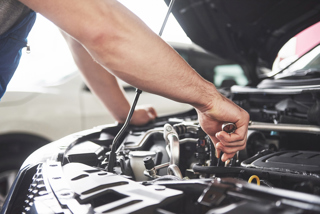Recent research shows dealers are losing thousands of pounds in revenue because they are not completing vehicle health checks.
According to autoVHC, which looked at the vehicles going through 500 dealerships in July and August this year, a third of them were released without undergoing a full vehicle health check.
With an average invoice standing at £64 per completed health check in July and £63 per completed health check in August, this equated to a potential loss of £11,295 in missed aftersales opportunities.
What is worrying is that autoVHC’s figures from July reveal that the average dealership failed to replace 66% of severely worn tyres, increasing the chances of exposure to repercussions, including potential legal action.
We know that the vast majority of aftersales work being presented to service departments are brakes, tyres, exhausts and clutches.
These jobs are highly valuable and contribute a significant proportion of a dealer’s overall profits.
VHCs give dealers an excellent opportunity to upsell work, increase customer satisfaction and build trust.
They also allow dealers to consistently communicate the condition of the vehicle to customers, whether there is additional work required or, just as important, if the car has a clean bill of health.
In the case of the latter, the customer can have faith that a VHC will not always result in additional work request and hence builds trust with the business.
That way, when something is found, the car owner can be confident that the work is required.
Ultimately, the legal requirement to advise customers of the road-worthiness of a car is reason enough to carry out VHCs.
However, as an opportunity to increase revenue and customer confidence, there aren’t many better options available to aftersales departments.
Our research shows that although most consumers will return to a dealer if they have had a good experience, over a quarter need help with recommendations.
Of those that need recommendations, 11% will ring round to get the best deal; 7% will ask a friend for recommendations; 4% will look up businesses online; and 4% will use an online comparison site to check prices, reviews and services in their local area.
Many customers are already concerned that they will charged for work that is not done, or that unnecessary work is carried.
So dealers should be shouting about their quality of their aftersales service to build consumer trust and shift misconceptions.
Customers are influenced as much by the services provided and previous reviews, as price.
We see increased conversions for businesses that clearly explain what customers are getting for their money in plain English and reference their parts and labour guarantees.
The ability to carry out a job and meet customers’ expectations is incredibly powerful in building trust.
With expectations being so low on standards, ironically, there is a great opportunity to blow customers away just by doing the basics well.
Bad reviews or complaints can also be an opportunity to promote quality of service – customers that leave bad online reviews about poor quality service should be engaged with by dealers to address issues and problems in a professional manner.
Potential new customers who check out reviews before contacting a dealer will feel they are seeing a true picture of its business and this can influence their purchasing decisions.
If dealers only have five-star ratings, they can appear to be too good to be true.
The best thing about a bad review is that dealers have the opportunity to respond in a way that shows they care and will win customers.
Author: Scott Hamilton (pictured), MyCarNeedsA.com managing director



















Login to comment
Comments
No comments have been made yet.